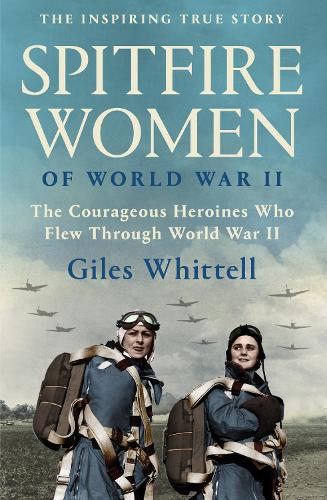
Spitfire Women of World War II
(Paperback)
Publishing Details
Spitfire Women of World War II
By (Author) Giles Whittell
HarperCollins Publishers
HarperPress
15th September 2021
8th July 2021
United Kingdom
Classifications
General
Non Fiction
Military history
940.544941082
Physical Properties
Paperback
304
Width 129mm, Height 198mm, Spine 22mm
270g
Description
The story of the unsung heroines who flew the newest, fastest, aeroplanes in World War II mostly in southern England where the RAF was desperately short of pilots.
Why would the well-bred daughter of a New England factory-owner brave the U-boat blockades of the North Atlantic in the bitter winter of 1941 What made a South African diamond heiress give up her life of house parties and London balls to spend the war in a freezing barracks on the Solent And why did young Margaret Frost start lying to her father during the Battle of Britain
They and scores of other women weren't allowed to fly in combat, but what they did was nearly as dangerous. Unarmed and without instruments or radios, they delivered planes for the Air Transport Auxiliary to the RAF bases from which male pilots flew into battle. At the mercy of the weather and any long-range enemy aircraft that pounced on them, fifteen of these women died, among them Amy Johnson, Britain's most famous flyer. But the survivors shared four unrepeatable years of life, adrenaline and love.
The story of this 'tough bunch of babes' (in the words of one of them) has never been told properly before. The author has travelled to four continents to interview all the surviving women pilots, who came not just from the shires of England, but also from the U.S.A, Chile, Australia, Poland and Argentina. Paid 6 a week, they flew up to 16 hours a day in 140 different types of aircraft, though most of them liked Spitfires the best.
Reviews
ThrillingI love this kind of book. Times
Some of the Air Transport Auxiliary's female pilots may have objected to being called tough simply because they were women but they were as tough as nails all the same, as this superb account makes clear. They flew unarmed, without instruments, in atrocious weather, and hardly paused to grieve when their comrades started crashing into hillsides. At long last these magnificent women have the tribute they deserve.' Sir Ranulph Fiennes
Impeccably researched and writtenand absorbing. Times Books of the Year
The strength of Whittell's book is as a collection of stories of unusual young women living colourful loves and doing skilled, resourceful, brave and risky work, which cost sixteen of them their lives. TLS
[a] most engaging book[with] intensely human stories. Whittell tells the story with suspense, perfect context and technical detail. It is quite impossible to read Whittell's book without emotional engagementone is all but overwhelmed by the sense of utter admiration. And of gratitude, indeed. Times
An eyeopening and at times very moving illustration of the courage and sacrifice of women who deserve to be remembered alongside their more celebrated male counterparts. Literary Review
The breadth of Whittell's research leaps of the page in telling encounters with the nowaged survivors The Scotsman
'Extraordinary stories of women who had little fear and minimal concern for the enormous step they were taking in banging Good grief, it's a girl! condescension on the head.' Good Housekeeping
Author Bio
Giles Whittell is a leader- and feature-writer for The Times and was previously the papers correspondent in Los Angeles and Moscow. His other books include Lambada Country and Extreme Continental, describing his travels by bike and motorbike through Eastern Europe and Central Asia during the collapse of the Soviet Union. He lives in London with his wife and three sons.
